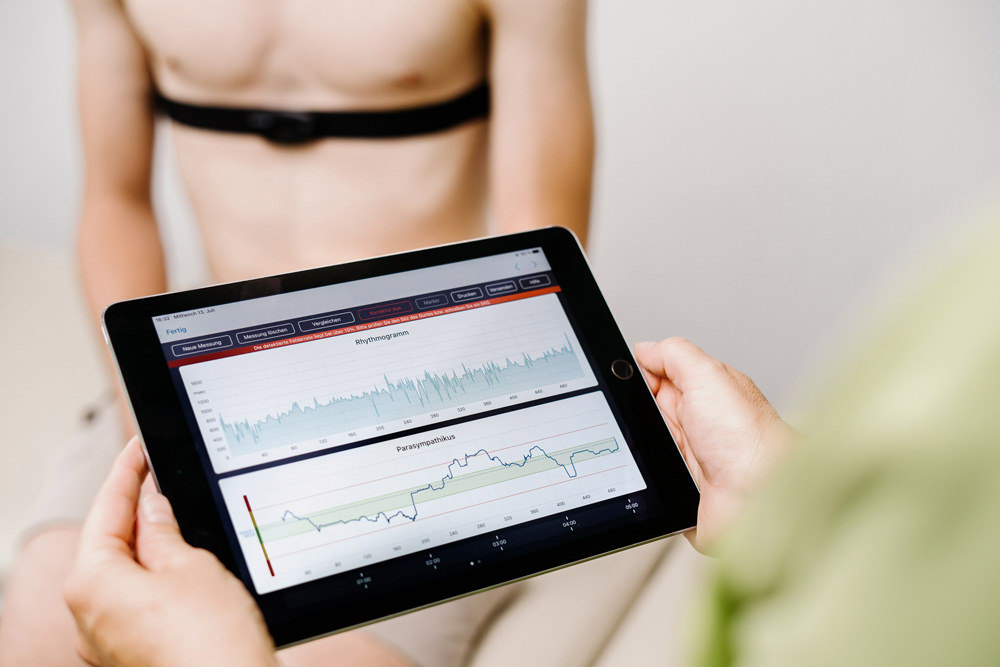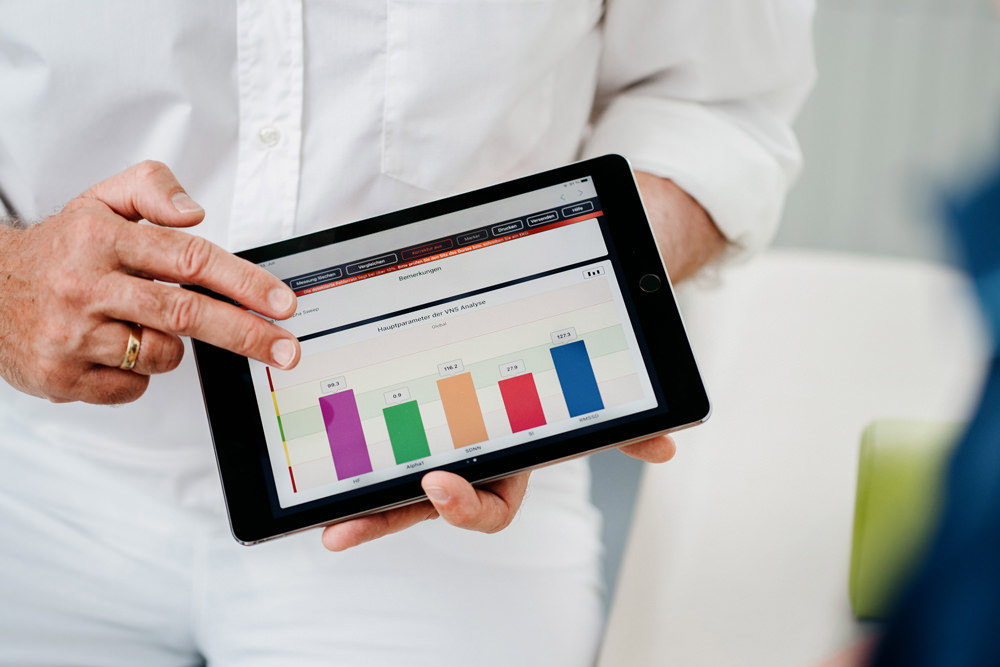Diseases of the autonomic nervous system can be recognized in time and treated
ANS Analysis Stuttgart / Ludwigsburg
The ANS analysis, offered by Dr. Kreisel at his practice in Bietigheim-Bissingen near Stuttgart and Ludwigsburg, is a diagnostic procedure recognized by all institutions and represents the medical and scientific gold standard. With this method, diseases of the autonomic nervous system can be recognized in time and treated. Other conditions include, for example, high blood pressure or excessive strain on the nerves, which can lead to burn out or depression. Chronic pain conditions or metabolic disorders can also cause disruptions in the regulation of the autonomic nervous system and lead to the development of other illnesses.

Analysis of the autonomic nervous system
Breathing, the immune system, digestion, hormonal balance, blood pressure and heart rate all appear to work automatically. Human beings have no direct influence over these processes. The control center responsible for these vital bodily functions is the autonomic nervous system (ANS) which regulates them in the body. If this system shows signs of disruption and that remains undetected, then illness may soon follow. That is why it is important to check the status of the autonomic nervous system. This is done with the help of the ANS analysis, which measures a person’s heart rate variability. At the practice of Dr. Kreisel in Bietigheim-Bissingen, we will explain to you how the ANS analysis works and what benefits it offers.

How does the autonomic nervous system work?
The autonomic nervous system is comprised of the sympathetic and parasympathetic nerves. The following example illustrates the interaction between these two nerves:
Prior to our comfortable, modern age, our ancient ancestors had to fight daily for their survival. The body reacts to these stressful situations with increased activity in the sympathetic nerve (tension nerve). Blood pressure becomes elevated, muscles are tightened and sugar (energy), along with stress hormones, is pumped into the blood stream. Simultaneously, systems that do not contribute to the fight or flight mode (digestion or the immune or hormonal systems) are slowed down. The stress hormones released are necessary to maintain the fight or flight condition. As soon as the fight or flight situation has passed, the sympathetic nerve slows down and the parasympathetic nerve (relaxation nerve) is activated in order to begin rejuvenating and regenerating the body.

What is an ANS analysis and what does it involve?
The ANS analysis tests the functional status of the autonomic nervous system. This is accomplished by measuring heart rate variability (HRV). To do this, 520 heart beats are recorded in a resting state. Then the variations in the heart rate are evaluated. If different time intervals are recorded during the ANS/HRV, then a variability has been detected. This means that the body is able to react well to internal and external stimuli. If no variability is observed, then the body is exhibiting a so-called sympathicotonic situation, meaning that the sympathetic nerve is active and the parasympathetic nerve is partially frozen, so to speak. At the same time, the size of the variability provides insights into how strongly the sympathetic and parasympathetic nerves are working in relation to each other. Ideally, when measuring the resting heart rate, the parasympathetic nerve should be more active than the sympathetic nerve.
What are the benefits of an ANS/HRV analysis?
Disruptions to the autonomic nervous system can lead to illnesses within just a few years. For example, constantly elevated blood pressure may manifest itself as hypertension, excessive strain on the nerves may lead to burn out or depression, etc. The analysis of the ANS is therefore an important preventative measure as part of a health check-up so that regulatory disruptions can be recognized in time and treated appropriately. But not only that. It can also be used to monitor the healing process of patients with chronic illnesses and allow for treatments to be optimized as well. Dr. Kreisel in Bietigheim-Bissingen near Stuttgart and Ludwigsburg recommends an ANS analysis at least once annually.
Do you suffer from a chronic disease?
Make an appointment today so that we can discuss VNS analysis and schedule it in.
